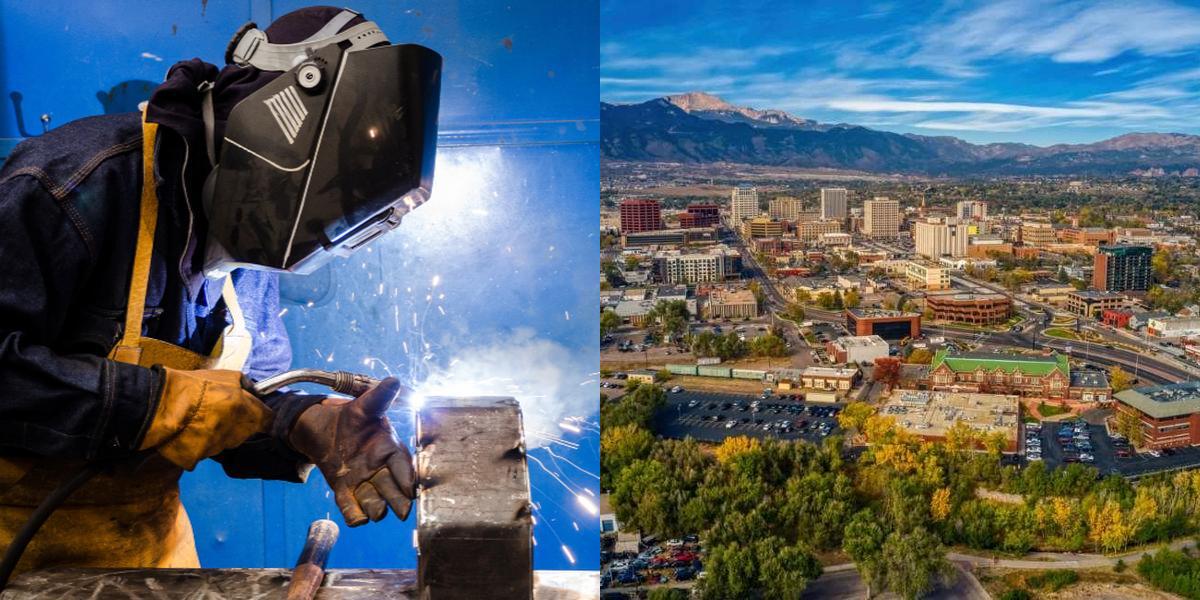How to Become a Welder in Colorado (2025)

If you're looking for a direct path to a high-paying, in-demand skilled trade in Colorado, becoming a certified Welder is one of the most solid career choices you can make. The state's booming construction and manufacturing sectors employ over 8,500 of these essential professionals, who earn a median salary of $58,900 per year, according to the U.S. Bureau of Labor Statistics. This guide provides the definitive 5-step process for navigating Colorado's training and certification requirements to launch your career building and repairing the world around us.
1. Construction Industry
Welders are in high demand in the construction industry. They play a critical role in building structures such as bridges, buildings, and pipelines. As a welder in the construction industry, you may work on large-scale projects, collaborating with architects, engineers, and construction teams.
2. Manufacturing and Fabrication
Manufacturing and fabrication companies rely on skilled welders to join metal components and create various products and machinery. This sector offers diverse opportunities, ranging from automobile and aerospace manufacturing to the production of household appliances and industrial equipment.
3. Oil and Gas Industry
The oil and gas industry requires welders for pipeline construction, maintenance, and repair. These welders often work in remote locations, challenging environments, and may be involved in offshore projects. The demand for welders in this industry remains strong, making it a lucrative career path.
4. Shipbuilding and Marine Industry
Shipbuilding and the marine industry provide opportunities for welders to work on the construction and repair of ships, submarines, and offshore structures. This sector offers unique challenges and requires welders with specialized skills and knowledge.
5. Automotive Industry
The automotive industry relies on welders for various tasks, including joining metal parts, frame repair, and bodywork. Welders in the automotive industry work in collision repair shops, manufacturing plants, or custom fabrication shops.
6. Entrepreneurship
After gaining experience and expertise as a welder, you may consider starting your own welding business. This path allows you to work independently, set your own rates, and choose the types of projects you want to work on. However, entrepreneurship requires not only welding skills but also business acumen and marketing knowledge.
Frequently Asked Questions
How long does it take to become a welder in Colorado?
You can complete a certificate program at a technical college in 7 to 12 months and be ready for an entry-level job. Becoming a highly skilled, multi-certified welder is a lifelong process of learning.
Do you need a license to weld in Colorado?
Colorado does not have a single, statewide license for all welders. However, you are required to have specific AWS certifications to work on most construction projects and in specialized industries, which serve as your professional credentials.
How much does welding school cost in Colorado?
A welding certificate program at a community college in Colorado is very affordable, typically costing between $5,000 and $15,000 for the entire program, including books and supplies.
Is welding a good career in Colorado?
Yes, welding is an excellent career in Colorado. With a high median salary, strong demand from the construction and manufacturing sectors, and the ability to earn six figures as a specialized welder, it's one of the top skilled trades.
Final Thoughts
Becoming a certified welder opens up a world of opportunities in various industries. By following the steps outlined above, you can obtain your welder certification and increase your chances of securing a job in the field. Remember to continuously improve your skills, network with industry professionals, and stay updated with industry trends to excel in your welding career.
If you're thinking of a new career path, Dreambound offers in-depth guides to understand various job choices:

Pia Yapjoco is part of the school growth and sales team at Dreambound. She helps facilitate school partnerships that expand educational opportunities for aspiring students in allied health and other trades. Beyond work, she curates her pup's Instagram, hunts for hidden coffee gems, and escapes into cozy gaming.





